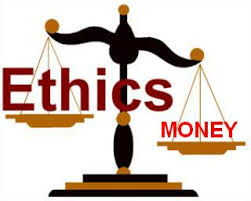
http://upload.wikimedia.org/wikipedia/en/thumb/c/c7/HNIC_Logo.svg/1048px-HNIC_Logo.svg.png
From its television debut in 1952 until the end of the 2013-2014 NHL season, CBC had exclusive rights to Hockey Night in Canada, a hugely popular TV broadcast of 2 NHL games on Saturday night, often interspersed with segments, such as Don Cherry’s Coach’s Corner, that discussed various hockey related topics as well as the games being played. HNIC was one of CBC’s most popular shows, until Rogers took over at the beginning of the most recent season.
This article discusses how CBC lost the rights to HNIC, coming to the conclusion that CBC was not aware of how the broadcasting market was changing and of the competition for the rights to HNIC. For example, when CBC negotiated with the NHL for the broadcasting rights, they demanded the digital rights as well for the same price, but the NHL requested more money for them. CBC did not adjust to this and as a result the NHL went to Rogers and BCE to negotiate. Furthermore, even after the NHL moved on to negotiating with Rogers and BCE, the leaders of CBC did not regard them as serious competitors for HNIC, even though they were giving serious offers. Overall, this article emphasizes the importance of being able to adapt to a rapidly changing landscape as not doing so can lead to major losses for the company.
Works Cited
http://www.theglobeandmail.com/sports/hockey/hockey-night-in-canada-how-cbc-lost-it-all/article21072643/?page=2





